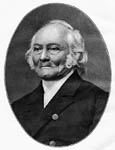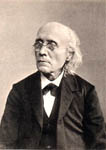Main Content
Lesson 1 : History and Research Methods
History
People have likely wondered about the mind since we first started walking on this earth. The Greeks (e.g., Socrates, Aristotle, and Plato) wondered how we gained knowledge about the world. They developed the ideas of nativism and empiricism: knowledge present at birth or gained through experience with an environment, respectively. The debate between these two ideas still exists today throughout much of psychology and are currently framed as the debate between nature and nurture. During the Renaissance, many of the world's leading intellectuals joined the discussion regarding the mind. Click through the tabs below to learn more.

One of the most influential people during this period was Rene Descartes. He proposed the mind/body problem (also referred to as dualism or the mind-body dichotomy), which makes a distinction between the physical body and the nonmaterial mind. Today this debate examines the relationship between consciousness and the brain. For example, it is easy to imagine your arm and what might happen if it gets cut. You would likely start bleeding, you could see layers of your skin, and so forth. What about this morning's breakfast? Can you remember or describe what you ate? Clearly something is going on in your brain when you have a thought, but can you tangibly create a thought? While this is an extremely interesting question, we will leave the philosophers to ponder the problem (although advances in neuroscience, covered more in Lesson 2, are shedding light on the answer.

Other philosophers entered the arena as well. John Locke revisited the debate of Plato and Aristotle and proposed tabula rasa—the idea that we enter the world with a "blank slate" (imagine a clean chalkboard) and only gain knowledge and abilities through our experiences with the world. According to Locke, nothing exists in the mind until we directly experience the world around us (filling our chalkboards with our experiences). Locke's ideas formed the basis for the behaviorist approach of the early 20th century.


